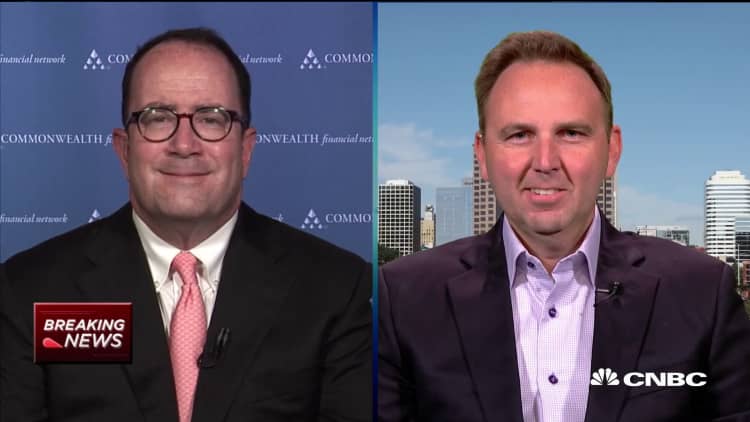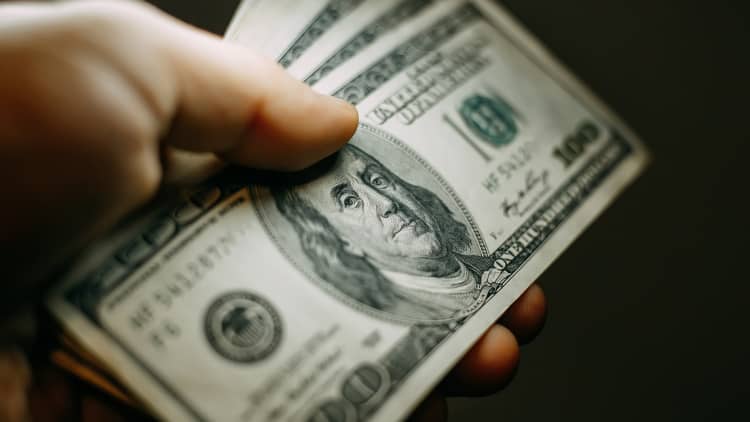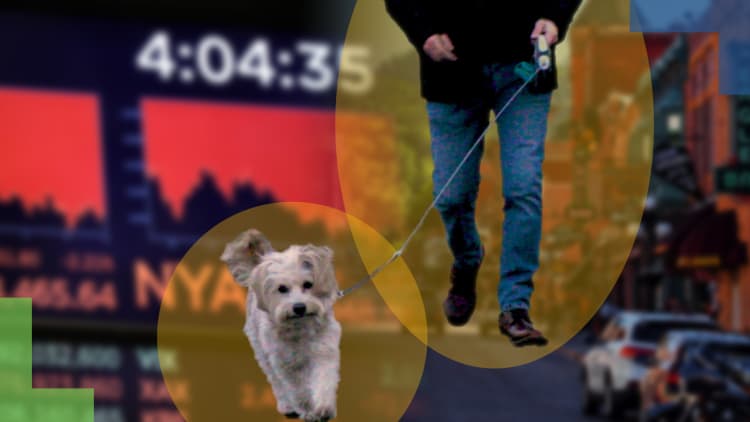
Corporate buybacks are "plummeting" as companies tighten their purse strings, and it could have a big impact on the market, Goldman Sachs warned in a note to clients.
In the second quarter, S&P 500 share buybacks totaled $161 billion, about 18% less than the first quarter, the firm found. The amount spent on buybacks this year is down 17% from a year earlier, although it is on track to be the second highest total on record, Goldman said.
The firm anticipates that this trend will continue, saying "early indications suggest second-quarter weakness in buybacks may persist."
For 2019, total buybacks will drop 15% to $710 billion, and in 2020 they see a 5% decline to $675 billion, the firm predicted.
Share repurchases have been a key element during this bull market, the longest on record. By repurchasing shares, a company reduces the number of shares outstanding. It can have the effect of boosting the stock price and lifts earnings per share figures.

It's a frequent, but not always popular, move for companies. Some argue that instead of using buybacks, companies should invest more in capital investments. And Washington is taking note. The House Financial Services Committee, for instance, is looking at ways to reform buyback spending laws.
All spending is slowing
The slowdown in buybacks is part of a larger trend of spending cuts, Goldman found, as trade uncertainty and stalling global growth weigh on the market.
Total cash spending fell by 4% year over year in the first half of the year, according to the firm. It anticipates cash spending for the entire year will decline by 6%, making it the sharpest yearly decline since 2009.
During the third quarter "CEO confidence plummeted to the lowest level since the Global Financial Crisis," Goldman said. It cited a recent study from Duke University that found a majority of CFOs expect the U.S. will be in a recession within the next year.
"Companies spend less cash when policy uncertainty is high. During August, global economic policy uncertainty registered the highest level in at least 20 years. Historically, growth in aggregate S&P 500 cash spending has been weaker during periods of high policy uncertainty. The combination of an ongoing trade conflict and next year's US presidential election will likely result in lingering uncertainty," Goldman's David Kostin wrote.
What to do about it
As corporate spending slows, investors hunting for yield should look to high-dividend stocks, the firm said.
Within each sector, Goldman said these are the best dividend stocks over the next two years: AT&T, Abbvie, Macy's, Molson Coors Brewing, Valero Energy, Citizens Financial, Eaton, IBM, Eastman Chemical, Simon Property Group, and Public Service Enterprise Group.
The 2021 median yield for S&P companies is 2.2%, according to the firm, while the median dividend in the Goldman Sachs Rising Dividend Growth Fund, which includes the companies noted above, is 4%.
— CNBC's Michael Bloom and Yun Li contributed reporting.



